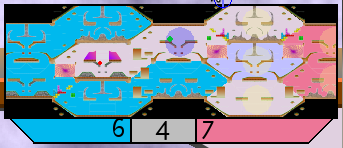According to the Hitchhiker’s Guide to the Galaxy, a towel is “about the most massively useful thing an interstellar hitchhiker can have.” When was the last time you wished you had your towel with you?
I was sitting on the train reading. Suddenly, the woman sitting next to me said “Aw no! Aw no! Aw no!” Water was leaking from the backpack that was resting at her feet, forming a puddle on the floor. As she picked up the damp backpack and rifled through it I put my book away. I wished I had my towel with me.
She pulled a water bottle from her backpack. “It’s my mum. She put this in here.” She fumbled with the water bottle lid. “It’s my mum. It’s the wrong lid.”
I tried to be helpful. “Maybe you could put the it in one of these side pockets to keep it upright.”
She put down her bottle and grumbled as she rummaged through the rest of her bag. “At least my lunch isn’t wet.” She pulled a damp receipt from her bag. “Gah, that’s useless!”
She paused, as if taking a breath. “Maybe I’ll put it in one of the side pockets… Huh, it doesn’t fit there, I’ll have to carry the jolly thing!”
“Perhaps you could stand it up in the corner of the front pocket”, I offered.
“Nah, I’ve got other stuff in there.” She looked at the bottle lid. “Hmph, that’s the problem.”
“Is it the wrong lid?” I asked.
“Nah.”
I looked where she was pointing. “The lid’s broken?”
“Yeah.”
She muttered to herself until we came to her stop and she got off. I silently asked God to let the rest of her day run more smoothly.


